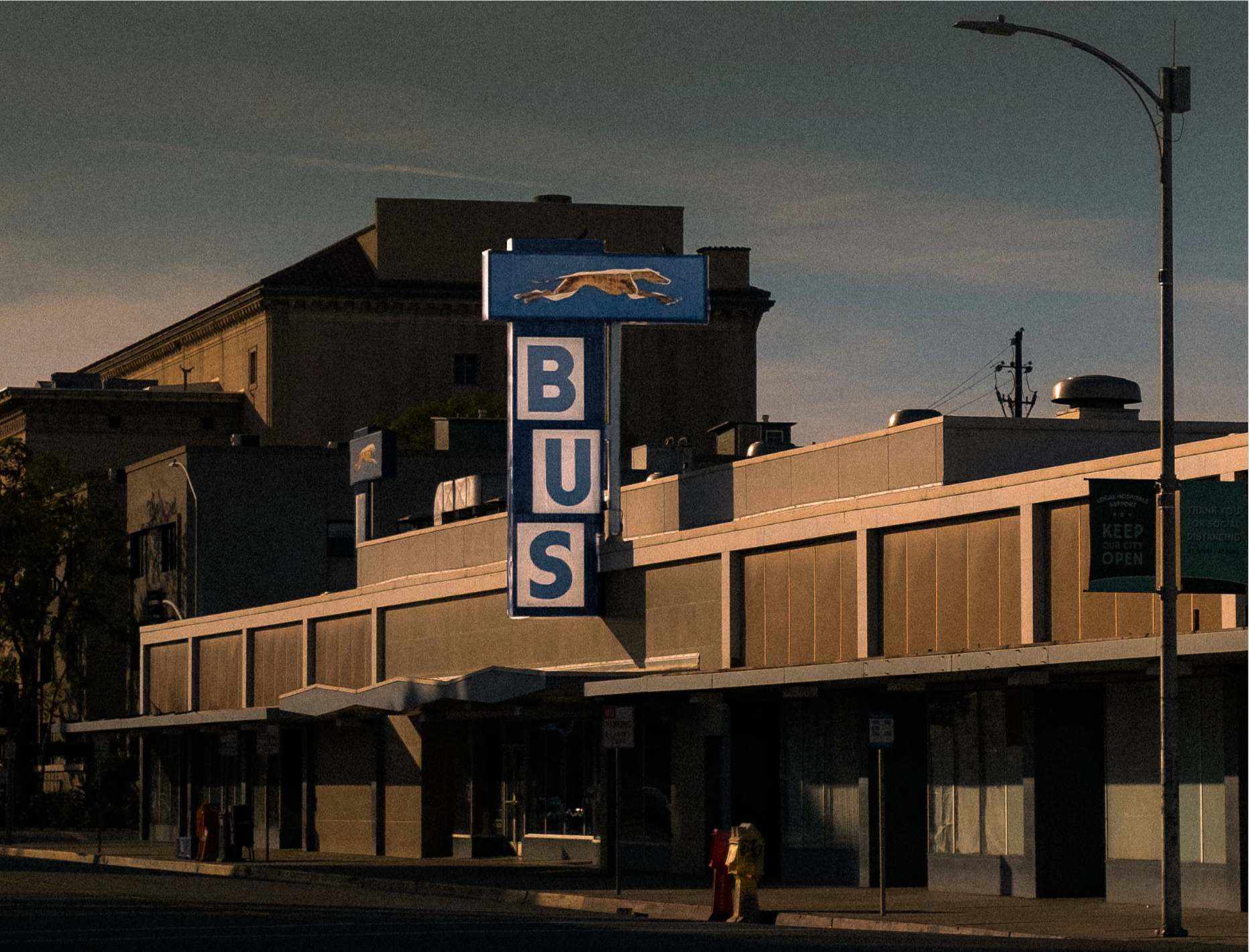Holiday travelers who want to skip — or can’t afford — crowded airports and clogged highways may face a new challenge this Thanksgiving: brutal waits at increasingly inaccessible inter-city bus stops.
Following a 2021 sale to German bus operator Flixbus and the 2022 sale of its stations to real estate company Twenty Lake, America’s largest intracity bus carrier, Greyhound, has shuttered its indoor waiting areas in a growing number of American cities, including Houston, Richmond, and Charlottesville. In the process, throngs of riders have often been shunted to outdoor stops in parking lots or on curbs, sometimes with no access to shelter, seating, restrooms, or basic customer services like route information — a situation the Philadelphia Inquirer called "a humanitarian disaster and a municipal disgrace." Some of those stops are located in suburbs miles from the core downtowns where terminals used to be located, with few transit connections for passengers who can't afford a ride to their ride.
In Little Rock, one Greyhound stop was moved onto the curb in front of a homeless shelter, much to the chagrin of passengers and shelter residents alike. Some employees of the center have even reported frustrated bus passengers pulling guns on them when they learned they couldn’t buy tickets from the adjacent building.
“They just dump them out here in the street,” said shelter employee Melissa Caulder in an interview with KATV. “And some of them have to wait until three o'clock in the morning for the next bus. And this is not the greatest of neighborhoods and they're fearful, they don't know where they are, who they can trust, or where they can get water."
Horror stories like these aside, some say the demise of the downtown Greyhound station has been a long time coming.
Prior to its recent sale, Greyhound was among the only intercity bus operators that still maintained its own dedicated stations, even in the face of increasing competition from budget outfits like Megabus, Boltbus, and their soon-to-be parent company, Flixbus. These new companies largely embraced a “curbside” pick-up model, where customers wait at street-level bus stops or parking lots outside gas stations, malls, and occasionally, larger transit centers.
By ditching the traditional depot — and slashing thousands of station-based jobs in the process — these bus line “disruptors” say they were able to increase service frequency and cut prices to the bone, even as they added amenities like onboard charging points and WiFi.

The “curbside” model has another potential upside, too: freeing up land for redevelopment. Recently decommissioned Greyhound stations in Louisville and Watsonville, Calif. are already slated to be transformed into affordable housing; Cleveland’s station, which is located in one of the city’s most walkable downtown neighborhoods, is going to be renovated into a multi-story apartment tower with a jazz club, “educational space,” and other mixed-use amenities on the ground floor; Philadelphia is contemplating tearing down a station to make way for a new basketball arena.
Not all of those development opportunities, though, will benefit Greyhound’s core riders, who are often low-income, at least in cities like Chicago. And it certainly doesn’t help car-free passengers who can’t afford an Uber ride to a far-flung suburban station, who don’t feel safe waiting alone for hours on a lonely curb if their bus gets in late, or who don’t have a few extra dollars to take shelter in a nearby restaurant, if one exists. It’s bad enough that countless Americans are left to wait in the rain for intra-city buses that may never come; passengers on inter-city buses with ultra-long waits between transfers shouldn’t have to share in that indignity.
In an era of accelerating climate change and traffic violence, shared modes like buses and trains should be our mode of first resort, especially on busy holiday travel weekends like this one, during which trips are expected to spike 2.3 percent. But until we invest in them — and divest from car dependency — the vast majority of Americans will end up in the same TSA lines and traffic jams as always, while many bus riders get literally left out in the cold.






